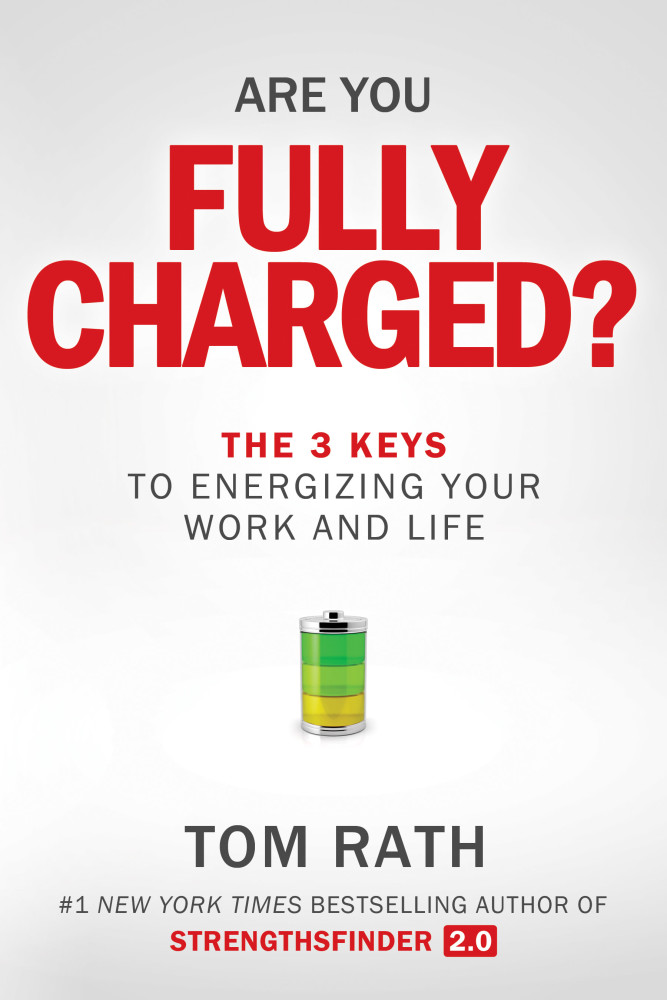By Jenniffer Weigel
Chicago Tribune.
Studying human behavior is a passion for author Tom Rath. “I’ve been doing this work for the last 10 to 15 years, and I still get surprised and inspired by the research,” said Rath, who has sold more than 6 million books, including best-sellers “How Full Is Your Bucket?” (Gallup Press) and “Eat Move Sleep” (Missionday).
His new book, “Are You Fully Charged? The 3 Keys to Energizing Your Work and Life” (Silicon Guild), draws on the latest research from business and psychology to discover the keys to loving life and being engaged at work. Following is an edited transcript of our conversation.
Q: You say in the book that money really doesn’t buy happiness. Can you explain?
A: Now that it’s so much easier to survey people and ping them on their smartphone … as a result of all this expansion of information and connectedness we now know a lot about what creates true well-being in the moment. The highest amount of positive experiences come where you’re having a real good day, making a difference to other people and feel rested and fully charged. You (don’t) have to be rich to be full of rich experiences.
Q: You write that a lack of sleep costs our economy $63 billion in productivity.
A: Sleep is a priority, not an expense to cut so you can be on email at 1 in the morning. It’s been refreshing for me to see some business leaders and leaders in the military talking about how you can’t have people working in these important jobs who have no sleep. That’s an equivalent of having a six pack of beer in their system. So when you start to compare sleeplessness with intoxication of alcohol, it becomes a lot easier to help people make those decisions about prioritizing sleep.
Q: What can people do to be more productive in their jobs?
A: In our research, the top performers do two things differently. One is they sleep longer than most Americans, they sleep eight and a half hours. And the other thing they do is work in bursts with rests in between.
Q: You say to deal with stress, one should think of it as a challenge instead of a stressor. How do we start?
A: We may not have any control over whether a person brings us a really negative charge, but we do get to choose our response every time. I lost my left eye to cancer when I was younger … and as a product of that I can’t see well on my left side. I bump into people all the time because I can’t see them. I’m not walking around trying to bump into people, but sometimes people think I’m being rude. If you could just pause for three seconds and ask yourself how your response is going to affect your day and another person, it makes it a lot easier to see this as a challenge. So we can think of these inconveniences as a stressor, or we can challenge ourselves to not take someone bumping into you personally. We face a challenge with more optimism than we do when we face a stressor.
Q: What can we do right now to improve our well-being?
A: The single most important thing you can do is to focus on a small act that picks up the spirits of another person. It creates so much collective good.














































































































































































































































































































































































